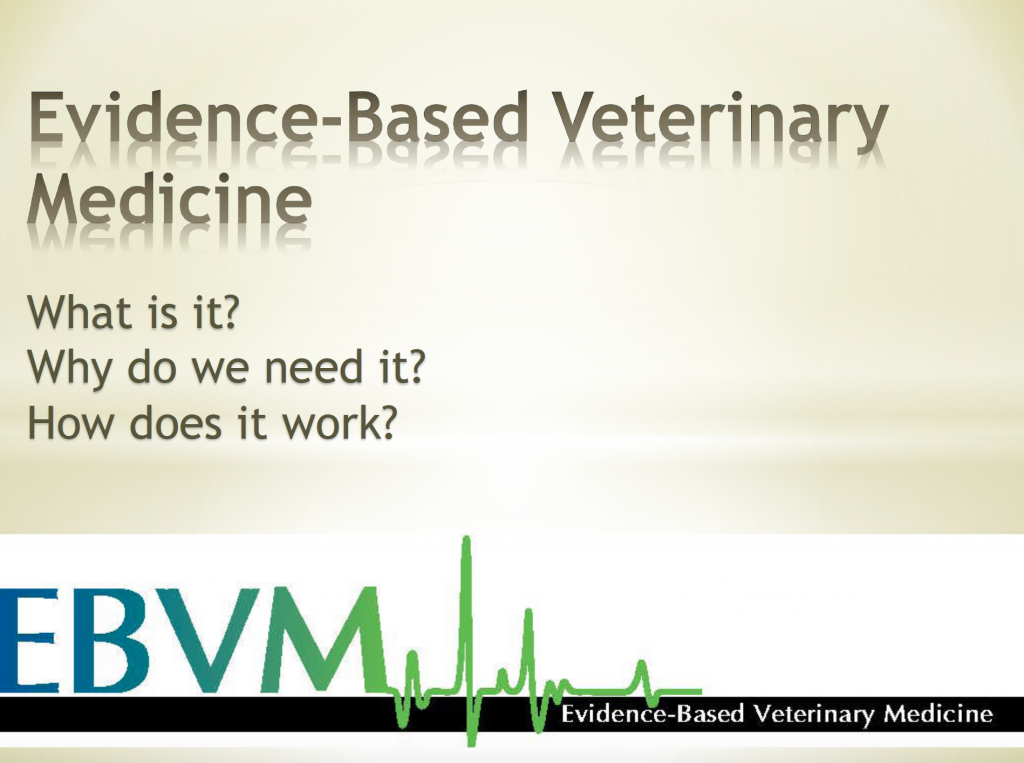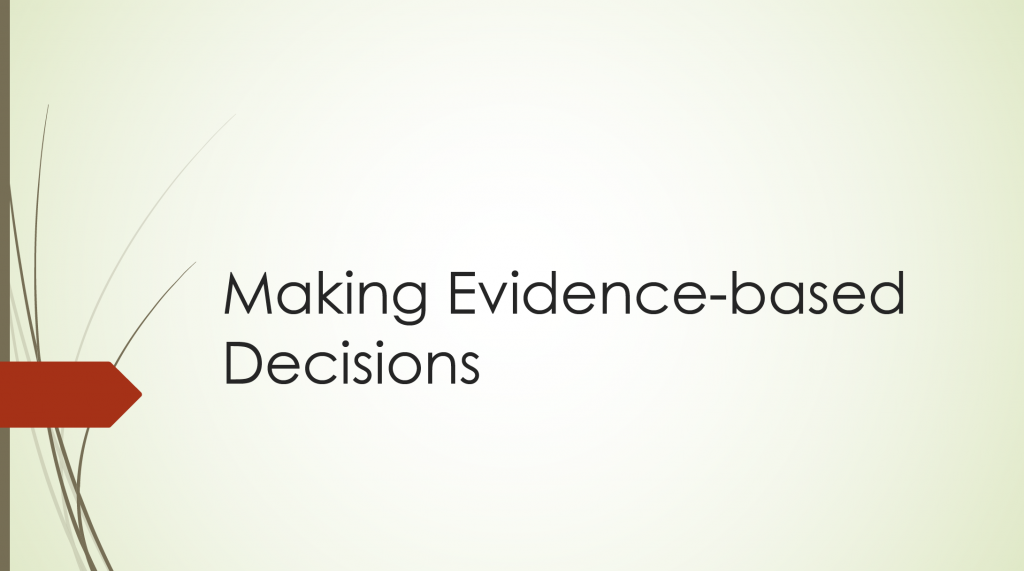Vets and vet students often get the idea that evidence-based veterinary medicine (EBVM) is a purely academic thing or isn’t practice in general practice. As a GP firmly committed to this approach, I like to debunk those myths whenever possible.
I recently spoke to the senior veterinary students at my alma mater, the University of Pennsylvania School of Veterinary Medicine about EBVM in practice, and gave some examples (including how EBVM has helped our practice in responding to COVID-19). Here are the slides for these presentations.












Skeptvet,
I found this article interesting regarding Reiki. I also was surprised to read that many hospitals are using it now. What are your thoughts on this matter??
https://www.ncbi.nlm.nih.gov/pmc/articles/PMC5871310/#section1-2156587217728644title
There are a number of red flags with this review. First, it is a narrative review, not a systematic review. It is essentially one person’s interpretation of the evidence without formal, structured or objective assessment of the quality of the evidence. That providers a lot of opportunity for bias.
Second, the author is not a medical research scientist, but a chemical engineer and Reiki practitioner. He also identifies as a Buddhist, and the philosophical foundations of Reiki were invented by a Buddhist monk, so they likely align well with his religious belief system.
Third, the journal the article was published in was specifically created to promote alternative medicine and tends to have a peer-review system very friendly to alternative therapies and very loose in scientific rigor.
The reality is that Reiki is a religious ritual based on intuitive manipulation of invisible spiritual forces. Objective studies that blind practitioners have shown their ability to sense the energy they claim to manipulate is no better than chance, so the underlying mechanism is certainly no plausible or compatible with science. It is possible to design and conduct studies that appear to show benefits, but such studies are more the expression of the beliefs of researchers then of reality if they don’t contain stringent controls. Many of the studies cited in this review used subjective outcomes ( a”comfortable feeling” or “relaxed muscles” and lacked rigorous controls for bias).
Nothing about this review is very convincing to those not already believers.
Thank you for your reply. I found this article as well. Not sure if it holds any merit.
https://www.uclahealth.org/rehab/workfiles/urban%20zen/research%20articles/reiki_really_works-a_groundbreaking_scientific_study.pdf
Again, this is a collection of opinions from Reiki proponents who do not have the training or experience to critically review the scientific literature.
Here is the conclusion from the National Center for Complementary and Integrative Health (NCCIH)
Here is a series of systematic reviews and assessments of the evidence concerning Reiki, which does not provide support for the practice:
Robinson J, Biley FC, Dolk H. Therapeutic touch for anxiety disorders. Cochrane Database Syst Rev. 2007;(3):CD006240. doi:10.1002/14651858.CD006240.pub2
O’Mathúna DP. Therapeutic touch for healing acute wounds. In: O’Mathúna DP, ed. Cochrane Database of Systematic Reviews. Chichester, UK: John Wiley & Sons, Ltd; 2016:CD002766. doi:10.1002/14651858.CD002766.pub5
vanderVaart S, Gijsen VMGJ, de Wildt SN, Koren G. A Systematic Review of the Therapeutic Effects of Reiki. J Altern Complement Med. 2009;15(11):1157-1169. doi:10.1089/acm.2009.0036
Lee MS, Pittler MH, Ernst E. Effects of reiki in clinical practice: a systematic review of randomised clinical trials. Int J Clin Pract. 2008;62(6):947-954. doi:10.1111/j.1742-1241.2008.01729.x
Ferraz GAR, Rodrigues MRK, Lima SAM, et al. Is reiki or prayer effective in relieving pain during hospitalization for cesarean? A systematic review and meta-analysis of randomized controlled trials. Sao Paulo Med J. 2017;135(2):123-132. doi:10.1590/1516-3180.2016.0267031116
Joyce J, Herbison GP. Reiki for depression and anxiety. Cochrane Database Syst Rev. 2015;(4):CD006833. doi:10.1002/14651858.CD006833.pub2
Rosa L, Rosa E, Sarner L, Barrett S. A Close Look at Therapeutic Touch. JAMA. 1998;279(13):1005. doi:10.1001/jama.279.13.1005
Thank you so much!!